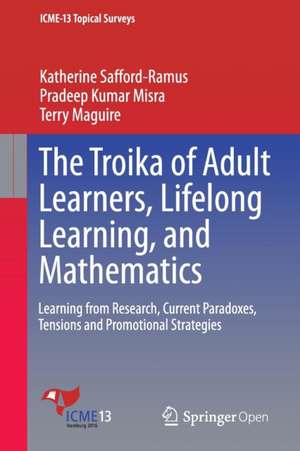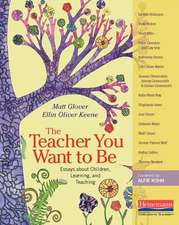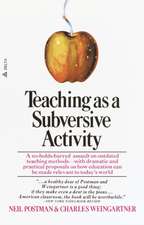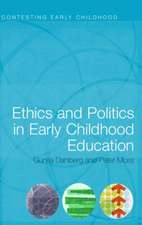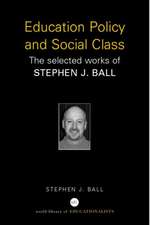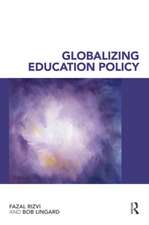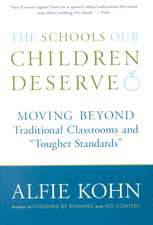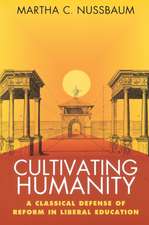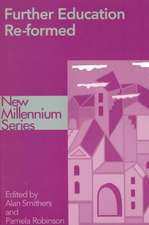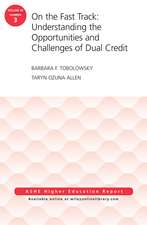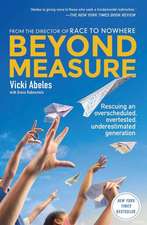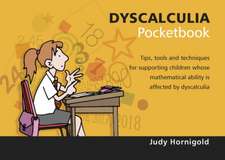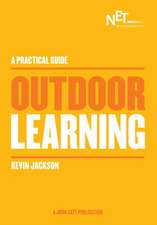The Troika of Adult Learners, Lifelong Learning, and Mathematics: Learning from Research, Current Paradoxes, Tensions and Promotional Strategies: ICME-13 Topical Surveys
Autor Katherine Safford-Ramus, Pradeep Kumar Misra, Terry Maguireen Limba Engleză Paperback – 11 mai 2016
Din seria ICME-13 Topical Surveys
-
 Preț: 136.40 lei
Preț: 136.40 lei -
 Preț: 136.40 lei
Preț: 136.40 lei -
 Preț: 136.40 lei
Preț: 136.40 lei -
 Preț: 136.02 lei
Preț: 136.02 lei -
 Preț: 136.40 lei
Preț: 136.40 lei -
 Preț: 136.40 lei
Preț: 136.40 lei -
 Preț: 136.24 lei
Preț: 136.24 lei -
 Preț: 136.24 lei
Preț: 136.24 lei -
 Preț: 136.02 lei
Preț: 136.02 lei -
 Preț: 136.24 lei
Preț: 136.24 lei -
 Preț: 136.40 lei
Preț: 136.40 lei -
 Preț: 136.24 lei
Preț: 136.24 lei -
 Preț: 136.02 lei
Preț: 136.02 lei -
 Preț: 136.02 lei
Preț: 136.02 lei -
 Preț: 136.40 lei
Preț: 136.40 lei -
 Preț: 135.47 lei
Preț: 135.47 lei -
 Preț: 136.02 lei
Preț: 136.02 lei -
 Preț: 135.85 lei
Preț: 135.85 lei -
 Preț: 137.38 lei
Preț: 137.38 lei -
 Preț: 136.02 lei
Preț: 136.02 lei -
 Preț: 136.77 lei
Preț: 136.77 lei -
 Preț: 136.99 lei
Preț: 136.99 lei -
 Preț: 136.02 lei
Preț: 136.02 lei -
 Preț: 136.40 lei
Preț: 136.40 lei -
 Preț: 136.77 lei
Preț: 136.77 lei
Preț: 136.40 lei
Nou
Puncte Express: 205
Preț estimativ în valută:
26.10€ • 27.32$ • 21.72£
26.10€ • 27.32$ • 21.72£
Carte tipărită la comandă
Livrare economică 31 martie-14 aprilie
Preluare comenzi: 021 569.72.76
Specificații
ISBN-13: 9783319328072
ISBN-10: 3319328077
Pagini: 38
Ilustrații: VIII, 41 p. 2 illus.
Dimensiuni: 155 x 235 x 3 mm
Greutate: 0.09 kg
Ediția:1st ed. 2016
Editura: Springer International Publishing
Colecția Springer
Seria ICME-13 Topical Surveys
Locul publicării:Cham, Switzerland
ISBN-10: 3319328077
Pagini: 38
Ilustrații: VIII, 41 p. 2 illus.
Dimensiuni: 155 x 235 x 3 mm
Greutate: 0.09 kg
Ediția:1st ed. 2016
Editura: Springer International Publishing
Colecția Springer
Seria ICME-13 Topical Surveys
Locul publicării:Cham, Switzerland
Cuprins
1. Introduction.- 2. Survey on state-of-the-art.- 3. Summary and looking ahead.- 4. Reference list.
Textul de pe ultima copertă
This book presents a synopsis of six emerging themes in adult mathematics/numeracy and a critical discussion of recent developments in terms of policies, provisions, and the emerging challenges, paradoxes and tensions. It also offers an extensive review of the literature adult mathematics education. Why do adults want to learn mathematics? Did they enjoy mathematics at school so much that they want to continue? NO! Most of these adults have to learn mathematics because it is part of a formal qualification they need, because their job demands the ability to apply mathematics, or because they need basic numeracy in their daily lives. Lastly, the authors discuss five potential strategies to promote lifelong learning of mathematics among adult learners.
Caracteristici
Offers an up-to-date overview of research on mathematics for adult learners Discusses the significance and need for lifelong mathematics learning Provides directions for future research Includes supplementary material: sn.pub/extras
